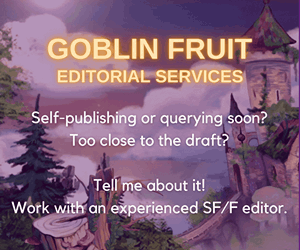One of the things touched upon in this story is the concept of infidelity in a virtual environment. Currently, people sometimes experience relationships in virtual landscapes, such as gaming environments, being “together” yet never meeting each other, but feeling that their relationship is no less real. In “Starship Day,” Owen and Hannah are further challenged by the tides of hope and despair experienced in their long journey. Yet throughout, there is a sense of Owen being anchored in their relationship. Does infidelity “count” when it’s a dreamscape, or a virtual reality, that might never happen in real life? Especially when you are imprisoned in that environment for countless years?
We know increasingly, both in terms of physics but also brain science (not to mention virtual worlds and the recent extraordinary events in politics) that the term “real” describes a useful illusion. We construct the world we perceive, not to mention our understanding of our existence and identities, out of something that isn’t really there in the way we think it is. Self and reality are plausible constructs—one we work with, even though we know they can be deconstructed in all sorts of ways. It’s what keeps us functioning and sane. Clearly, it wouldn’t be much of a defense for being unfaithful, or any other kind of “immoral” act, to say that everything’s an illusion anyway, and time, matter, and existence are merely holograms projected into the multi-dimensional spacetime foam, but in ways we can’t understand, that seems to be true. Then, when it comes to morality itself, we’re into an even more fluid area. Acts which we would perceive as entirely wrong would be seen as totally normal and acceptable in other times and in other societies. Moral relativism isn’t a theory, it’s a proven (inasmuch as we can prove anything) historical fact. All of which is a roundabout way of saying that I don’t know!
In a sense, this is a story about the will to live, and how fragile that will can be. People simply give up and cast themselves into non-existence, weary and losing grip on their flailing hope. I can almost guess that Owen’s time is coming soon, while the others are collectively holding onto their delusions; or, perhaps, he is stronger for his cynicism—a contrast demonstrated by Sal’s demise, a depressed man whose delusions were falling apart. Do you feel like this story represents, in some sense, how we live today: that we struggle against constant waves of disappointment, and that we can either bolster ourselves despite disappointments, or let them wear us down into giving up?
Again, and as you’re picking up, this is a story about the fragility of hope, and of existence. Although I think it’s cut, as in a lot of my fiction, with a sincere belief in the beauty of now. I’m not a religious person, but I am a spiritual one, and I guess what I (and perhaps many of my characters) cling to is that.
One of the interesting undercurrents here is the fallibility of science. The ship has held together for the most part, but is falling apart. The expedition itself has been thrown into the unknown, at this point just flying to star after star, running on hope and guesses. Do you feel like scientific exploration and experimentation, in real life, is more responsible and effective than this? Or is this perhaps representative of human nature in general, of the impulse to rush in, often not quite prepared for what awaits?
The stories that generally make it into history involve winners and successes. We don’t read, and often don’t even know, about the explorers who didn’t make it—who set out to sea and got lost and drowned. Similarly, when it comes to scientific discoveries and suchlike. But we also know that, for every Columbus and Newton, there are a lot of other equally brave and stupidly arrogant people who set out to prove something who were forgotten. Having said that, there’s a modern, or at least Romantic and post-Romantic, obsession with failure that I suppose I’m tapping into. Amelia Earhart and Captain Scott and so forth. It’s a particularly British obsession, or at least European. Since we don’t win at that much any longer, we have to celebrate failure instead of success. That and, as you say, the human impulse to push on no matter what.
Is there anything in particular you’d like readers to know about this story?
I think I was tapping into what currently feels like an over-pessimistic view of the lifelessness and emptiness of the Universe. There are so many planets out there, many of which appear to have atmospheres, that it doesn’t seem unlikely that we might be able to detect some life-bearing, or at least life-friendly, worlds within the next few decades. But these things come and go. It really wasn’t that long ago that we were expecting jungles on Venus and canals on Mars. Now, and I’ll fully accept that we’ve progressed hugely in observational terms, it’s the lakes of Titan or Europa, but it’s still all hopeful speculation and nothing more. These things come and go, and perhaps the launching of the starship on which Owen and the others find themselves was at the peak of some wave of optimism which turned out to be wrong.
What are you working on now that we can look forward to reading?
I have a new short story collection called Frost On Glass, which also includes some autobiographical writings, along with stuff about the craft of writing itself, out from PS Publishing. Then, sometime next year, you should see my ambitious new novel Red Snow, which features vampires, the Wild West, the French Revolution, the Wall Street Crash, and a fair amount of mysticism, from the same publisher. That, and I’m still writing short fiction. I’m pleased to say that my recent story, “The Visitor from Taured,” has been picked up for at least three of the year’s best collections, so look out for that. Like those stupid, arrogant explorers, I’m still setting out for new worlds in the hope that I won’t get lost and drown. But seeing as reality is an illusion anyway, maybe these are the last thoughts of a dying brain.
Thanks for the thought-provoking story and for your time!
Enjoyed this article? Consider supporting us via one of the following methods:









